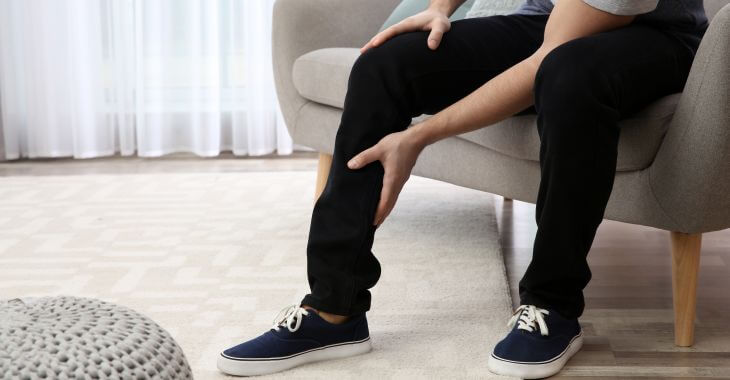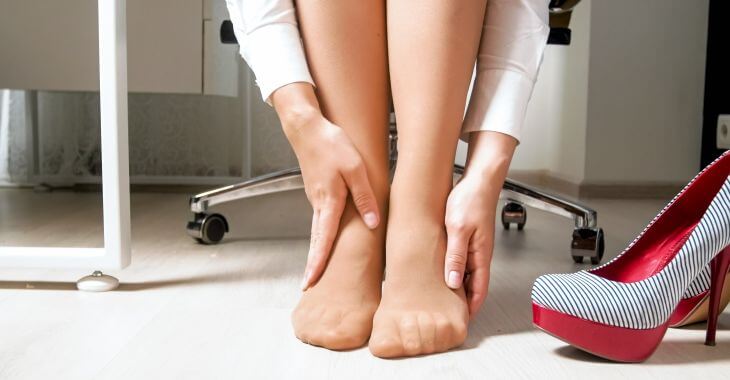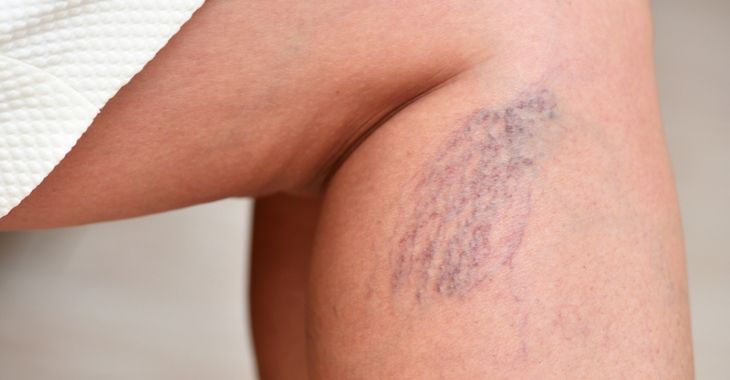Why Do My Legs Feel Heavy and Tired?

Does it feel like your shoes are filled with lead when you walk? If you have heavy legs, it can be a sign of a health condition. If you wonder, “Why do my legs feel heavy and tired?” it may be time to visit your doctor. Let’s take a look at the possible causes and treatments for heavy legs.
Occasional Aching, Heavy Legs
Most people experience heavy or tired legs occasionally. The majority of tired or heavy legs symptoms are simply caused by overexertion. If you went on a long hike or had a long day at work, your legs may be tired the next day or two. If you are working out too hard, you may experience overtraining syndrome.
Overtraining syndrome can make your legs feel heavy and tired on a regular basis. If you cut back on your workouts and still have heavy legs, there may be other concerns. When you wonder, “Why do my leg feel heavy so often?” and it is not from physical strain, something else may be causing your symptoms.
Venous Insufficiency and Tired, Heavy Legs
Your circulatory system provides blood and oxygen to all the cells in the body. Veins are designed to deliver blood out to all the cells and then deliver it back to the heart and lungs. When the veins in the legs are damaged, they may have venous insufficiency, which can cause heavy, tired legs.
Venous insufficiency occurs when the valves in the veins do not work correctly. These are one-way valves that keep the blood flowing back up to the heart. If the veins allow blood to leak backward, it can cause pain and heaviness in the legs among other symptoms, including:
- Spider veins on your legs
- Varicose veins or bulging veins in the legs
- Heavy legs when you wake up in the morning
- Swelling in the calves, ankles or feet
Venous insufficiency symptoms can be managed, but there are risks of more severe complications. Deep vein thrombosis, or DVT, is a possible health risk for those with varicose veins or venous insufficiency. Managing your condition with treatments, lifestyle changes and other therapy can reduce your risks.
Peripheral Artery Disease (PAD)
Another circulatory problem that can cause heavy or tired legs is peripheral artery disease, or PAD. This condition occurs when plaque and cholesterol build up in the arteries from atherosclerosis, resulting in narrowed arteries and reduced circulation. One of the most common areas affected by PAD is the legs.
When you have PAD, you may notice that your legs feel tired and weak. The heaviness or weakness can dissipate with rest, but there are usually other symptoms. You may notice your feet and toes are cold from poor circulation and sores do not heal quickly on your legs or feet.
PAD is not immediately life-threatening, but it can lead to serious complications. Risks include stroke, heart attack, gangrene and amputation of limbs. Lifestyle changes, medications and other treatments can help reduce your risk of complications from PAD and improve your leg function.
Spinal Stenosis
When your spinal column narrows, it can put pressure on the spinal cord and nerves in the spine, a condition called spinal stenosis. If you have back pain accompanied by tired or heavy legs, it may be a sign of spinal stenosis. The pressure on the nerves can result in radiating weakness into the legs.
Spinal stenosis can cause chronic pain and other problems. If you wonder, “Why do my legs feel heavy while I have back pain?” it could be due to spinal stenosis. There are interventional treatments for spinal stenosis and minimally invasive procedures that can give you relief.
Lymphedema
If your heavy and tired legs are combined with swollen, tight skin, you may be experiencing lymphedema. This is a condition that results in extra fluid storage in the legs or arms. The heaviness can impact mobility and the swelling can increase risks for infections.
Treatments for Heavy Legs
The treatment for tired, weak or heavy legs depends on the cause. If there is an underlying health condition, seeking treatment for PAD, varicose veins or lymphedema can offer relief. There are also some general lifestyle changes and treatments that can help with weak or tired legs.
Obesity and lack of exercise often contribute to heavy or tired legs. Eating healthier, exercising and losing weight are recommended for anyone suffering from leg heaviness that is overweight. Other possible treatments can be reducing sodium in your diet and wearing compression leg garments.

If you have accompanying symptoms, you should see your doctor and ask, “Why do my legs feel heavy and tired?” Your doctor can evaluate your other symptoms to determine if you have a spine, circulatory issue or other health condition causing your heavy, weak or tired leg symptoms.
The information provided on this website, including text, graphics, images, and other materials, is intended solely for informational purposes and should not be used as a substitute for professional medical advice, diagnosis, or treatment.



)